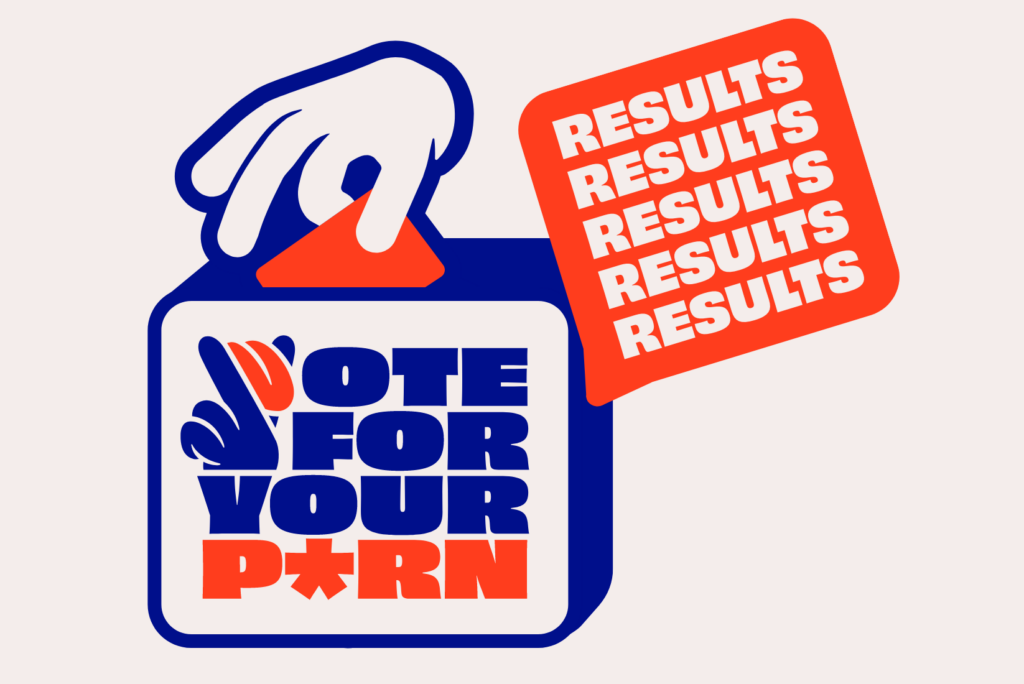Even with their growing popularity, open relationships or ethical non-monogamy in general remain misunderstood and many couples are unsure where to begin their journey. Admittedly, the switch from fantasizing about numerous sexual and romantic encounters to the reality of practicing ethical non-monogamy can be more challenging. What I found deeply upsetting about opening a long-term monogamish relationship was that I didn’t know what problems were going to pop up until shit started hitting the fan. And issues start from the very first conversation about opening up. While theoretical threesomes are hot and easy, the reality is not always that straightforward. I work with a lot of couples who also wish someone had given them a heads-up before they jumped into non-monogamy. I am not here to sugarcoat anything, I want to talk about the real and common issues that long-term partners face so you can have a bit of a warning. It is not meant to scare you, but rather to give you the ability to resolve differences and work together to overcome misunderstandings. After all, teamwork largely determines the extent to which couples will remain in open relationships. And while each relationship is unique, there are many common hurdles that long-term partners encounter.
Where do you even begin?
There are usually two types of people – those who want to understand all the ins and outs of ethical non-monogamy before opening the relationship, and those who want to learn through trial and error. Both are valid, but it can create a knowledge discrepancy when one person has read a half dozen books and listened to twice as many podcasts, while the other does not even know basic ENM terminology. Suddenly, what started as a joint endeavor can create alienation where couples feel like they are no longer speaking the same language, much less aligning on how to set agreements or talk through conflict.
Consider:
The first issue to discuss with your long-term partner is how much work you want to do. Often, couples who open their relationship do not have real-world examples. It can be easy to let your fantasy of hot and easy threesomes excite you, only to realize that you have no idea how to set up a threesome, let alone navigate the needs of multiple partners. Second, some types of ethical non-monogamy require more ongoing work and commitment than other structures. Understanding the various styles can help you assess what will work with your existing lifestyle. Before making a move, decide with your pals how much you want to learn about non-monogamy and how much you are willing to do maintenance work together.
Feeling “safe” to explore requires facing our fears
Working with non-monogamous couples, I have learned that people have wildly different needs when it comes to feeling safe. Some couples need a strict plan that is rigidly adhered to in order to feel comfortable with their pals going on a date. Other couples want to know as little as possible about what their partner is doing with others. Some folks feel more comfortable hooking up with friends that they already trust. Others feel less threatened by casual sex with strangers they will not see again. Still, others want to participate in sexual activities and dates together. There are many different ways to define safety in a non-monogamous relationship. If you feel better exploring with your pal, the dating process will look different than if you are interested in dating separately. It is important not to let fear entirely dictate the type of non-monogamy you practice, but rather to find what excites you about non-monogamy and define a structure/set of agreements accordingly.
Consider:
Thoroughly identify what/who poses a threat to your relationship and why you believe that is the case. Often, we exaggerate the level of threat, I describe this as creative jealousy, so it is important to sit with your fears to assess if they are real. Just because fear is not grounded in reality, does not mean the emotional experience is benign. I’ll admit, I am a master of hurting my own feelings by indulging my creative jealousy. Knowing this about myself allows me to establish an ENM structure that causes me the least amount of distress. Many folks eagerly list out everything they feel uncomfortable with, not realizing that they might be projecting a core sense of insecurity about the relationship onto hypothetical other partners. If you find yourself with an enormous list of rules starting with “DO NOT” that you *need* your pal to obey, I urge you to consider if ethical non-monogamy is right for you. Ethical non-monogamy is supposed to be an expansive experience not to swallow you with insecurity. Many folks decide to open their relationship because they feel bored only to realize they want more quality interactions with their existing partner, rather than with new partners. There are many creative ways to explore sexually with others while maintaining a mostly exclusive dyadic partnership if you realize that is the case!
Exploring together or separately?
One way to open your relationship can be to have a threesome or group sex. For many established couples, playing together can reduce the “unknown” factor. However, it is worth noting that group sex does not necessarily take away the potential for spicy feelings. Watching your pal get dirty with someone else can be a huge turn-on or it can leave you in a puddle of jealousy. By contrast, hooking up separately can be awesome for couples who have different sexual desires. There is no right or wrong decision, both styles of ethical non-monogamy have their benefits and drawbacks, and you are welcome to try different options. Regardless of the style of open relationship that you choose, discuss expectations together (and with other people involved) so everyone is on the same page. Be sure to clarify whether this will be an ongoing relationship or a one-time experience. If you intend on forming a triad, you will need to discuss how the new person will fit into the established relationship. Remember that you and your partner will have far more time to process together and discuss what you both want than the other person/people involved. For this reason, it is crucial to factor in how this power imbalance might show up during group sex and give ample space for the third person to voice their desires. A couple’s privilege can turn toxic when it is not acknowledged!
Consider:
A good starting point for couples interested in threesomes or group sex is by defining fantasies! What about hooking up with other people appeals to you? Next, take time to understand your boundaries. How do you intend to behave if you experience jealousy? How will you support your partner if they experience jealousy? How will you show up to support the other person joining this experience with you? This should go without saying but thirds are not need-fulfillment machines. It is equally (if not more) important to discuss with your pal how you intend to make space for the person joining you than it is to discuss what you want. Lastly, you can ensure that everyone feels respected by discussing an after-care plan. Take some time to provide kindness and affection to the person or people who shared this experience with you.
The reality of finding other pals can be bleak, especially as a couple
Dating is challenging, there are lots of apps, lots of rejection, lots of flakiness, lots of misaligned relationship structures, and lots of empty promises. It can be even harder to find someone to join your threesome! It is hard enough to find someone who is compatible with you, let alone you AND your partner. But it is certainly not impossible. Regardless, getting back into dating can often feel overwhelming for couples who have been together for years or have never functionally dated anyone but each other. You might also be disappointed to realize that you and your partner are not getting the same amount of attention. Maybe the promising new person turns out to only be interested in one of you. It is common to struggle to find the perfect third that you fantasized about when you initially discussed opening the relationship. Lots of pals get frustrated when there is an obvious discrepancy in the amount of interest they each garner. I recently spoke to a couple who were intent on finding a “hot redheaded bisexual” to explore with, only to realize that the play party they went to was largely attended by single men who did not interest either of them. There is also the very real and common chance that your pal will be interested in someone you do not approve of. It is good to know upfront if you have any say in the partners that you each choose and to consider the ethical ramification of those decisions. Again, clarity is key. Some couples realize they do not want to spend their bits of free time searching for new pals on dating apps and would prefer occasionally swinging with their friends, even if that was not the original plan. It is useful to think about how you and your pal will adjust to the reality of dating if it does not live up to your expectations.
Consider:
There are inevitably tradeoffs in ethical non-monogamy. If you throw yourself entirely into the world of dating, you inevitably bite out chunks of time that could be spent with your existing partner. It is a good idea to discuss how invested you both want to be in your search for new pals. Do you want to go on twenty or more first dates a month or would you rather attend a play party occasionally? Many of my clients report that non-monogamy is not what they “expected” after a few months. If you have clear expectations or constraints around time and energy, it is best to assess ahead of time.
Anger Flares When Desires Switch
It is all too common that the partner who initially suggested opening the relationship becomes the one who wants to close up, while the initially reluctant pal discovers they actually want to maintain this relationship style long-term. Of course, I hope that opening your relationship will lead to long-term satisfying non-monogamy that enhances all of your partnerships. But that is obviously not realistic. Many couples find that they no longer want to be open, for a variety of reasons but find that it does not work for their partner. Feeling torn between staying in an open relationship or breaking up, partners can feel angry about the decision to ever try non-monogamy.
Consider:
Hopefully, this will not be necessary, but it is important to understand what happens if ENM does not work. Sometimes pals feel obligated to suffer through bouts of persistent jealousy. Others cannot understand why their pal is seemingly “choosing” their new partner over them. Whatever the situation, it is useful to come to a consensus about how to decide whether to remain open. I suggest that couples start their exploration with a no-commitment trial period of 3 or so months. At the end of the trial period, the relationship can return to a dyadic partnership unless both parties are interested in remaining open. It can feel difficult to change your mind if the initial decision to open was never framed around the possibility of closing up again. There is no shame in realizing something does not work, but it can get messy if you never discussed that in the first place.
Feeling Deprioritized Can Have Devastating Consequences
Possibly the most painful experience in polyamory is feeling deprioritized by your long-term partner. When folks experience new relationship energy (NRE), they can get consumed by the new partner failing to give enough attention to their long-term relationship. Many established partners feel distraught when their metamour starts to take up more time and energy. The feeling that they are losing exclusivity in many aspects of their relationship can be too much to deal with. Unfortunately, long-term polyamory does require sharing. For folks who enjoy having many people in their lives or thrive on their independence, the process of another relationship escalating can feel like a welcome adjustment to a previously suffocating partnership. But for those who enjoy lots of attention and connection with their primary partner, a change in dynamic can boil up insecurity and distress. Again, the word “prioritization” means different things to different couples, so it is best not to assume that you and your pal are on the same page. Talk about it ahead of time!
Consider:
Not to sound overly judgmental, but my question is always, “why did you want to be polyamorous if you expected to be treated like you are monogamous?” And I get that without the experience of deprioritization, most people struggle to accurately understand what that experience feels like. But a word of warning, if you do not want your pals to share your time with others, polyamory is definitely not for you. Again, it is absolutely crucial to take into consideration what you value about your partner. If having a large amount of their time and attention is necessary for you to feel connected, I suggest you explore types of open relationships with low commitment. Hiring sex workers, attending play parties, or having occasional sexual escapades might be a better fit. There is no shame in any of these choices, but it is important to clarify ahead of time. It can be really difficult to tell your partner you want casual hookups after they have already started dating another person.
Open relationships can be fun and bring about lots of interpersonal growth. But it is a good idea to understand some of the potential pitfalls before diving in so you can prevent unnecessary hurt. Of course, no matter how much planning and processing you do with your pals, there will always be additional surprises. Opening a relationship means that you are agreeing to work through challenging situations with your pals. Take each step slowly, and give yourself plenty of time to sit with circumstances before deciding on a course of action and you should be fine!
Our selection of articles is growing every week.
Go educate yourself and dive deep into several topics around Sexucation, Culture, Health and Love&Lust.









